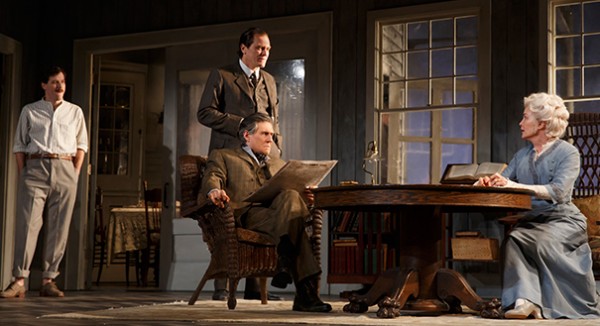
The Tyrone family battles its inner and outer demons in Roundabout revival of Eugene O’Neill masterpiece (photo by Joan Marcus)
American Airlines Theatre
227 West 42nd St. between Broadway & Eighth Ave.
Tuesday – Sunday through June 26, $67-$147
212-719-1300
www.roundabouttheatre.org
As the audience enters the American Airlines Theatre to see the Roundabout revival of Eugene O’Neill’s Pulitzer Prize-winning drama Long Day’s Journey into Night, a white curtain billows ominously from the right side of the set, blown by the wind from an offstage shore. It’s as if we’re being warned that what we’re about to see is a kind of ghost story, and that’s precisely what we witness over the next three hours and forty-five minutes, an intense tale told as if the dysfunctional Tyrone family must relive their personal horrors over and over again, continually hiding from the truths that overwhelm them. Sixty-five-year-old patriarch James Tyrone (Gabriel Byrne) is a miserly, well-known actor who is fond of the bottle and the small tract of land that he owns. He is still in love with his wife, the fifty-four-year-old Mary (Jessica Lange), a morphine addict who has been in and out of sanatoriums and is struggling to deal with reality. Their older son, thirty-three-year-old Jamie (Michael Shannon), is a brash, ne’er-do-well philanderer and would-be actor always at odds with his father. And the younger son, twenty-three-year-old Edmund (John Gallagher Jr.), is a more sensitive soul who is suffering from an illness that might be consumption. It’s August 1912, and the Tyrones are at their summer home on the beach. “I can’t tell you the deep happiness it gives me, darling, to see you as you’ve been since you came back to us, your dear old self again,” James tells Mary, who has recently returned from her latest rehab stint. James and Jamie are trying to keep the severity of Edmund’s illness from Mary, fearful that the truth will send her back to her drug of choice. “It’s a relief to hear Edmund laugh. He’s been so down in the mouth lately,” she says early on, which James ignores resentfully. Soon James and Jamie are having one of their regular arguments, which upsets Edmund and Mary. “What’s all the fuss about? Let’s forget it,” Jamie says. “Yes, forget! Forget everything and face nothing!” James shouts back, summarizing the general Tyrone philosophy. Meanwhile, Mary compares James’s snoring to the foghorn that keeps her awake at night, as if the harsh sound is a wake-up call, warning of dire things to come that all ignore. As they await the verdict from Doc Hardy regarding Edmund’s illness, the ghosts continue to hover over this doomed family, unable to save themselves from their sad destiny.
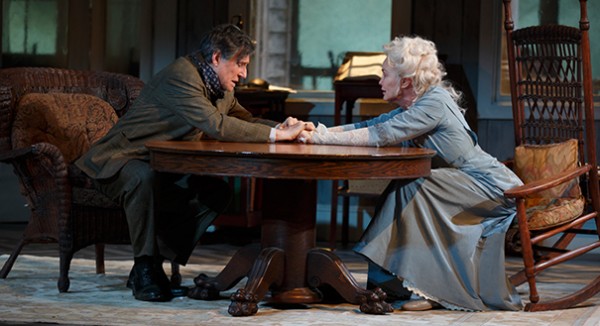
James Tyrone (Gabriel Byrne) and wife Mary (Jessica Lange) hold on to each other for dear life in LONG DAY’S JOURNEY INTO NIGHT (photo by Joan Marcus)
Completed in 1942 but not published and performed until 1956, three years after O’Neill’s death at sixty-five, Long Day’s Journey into Night is a semiautobiographical look at the playwright’s own family over the course of one very long day, from 8:30 in the morning to midnight. It takes a while to get used to accepting the cast as the Tyrone family; while Byrne is around the right age for James, Mary is supposed to be eleven years younger but Lange is actually a year older than Byrne, and Shannon and Gallagher at first seem completely miscast, but they both eventually settle into their roles. Director Jonathan Kent (Hamlet, Man of La Mancha) makes the most of Tom Pye’s (The Testament of Mary, Fiddler on the Roof) inviting yet haunting set, Natasha Katz’s (An American in Paris, Aida) appropriately moody lighting, and Clive Goodwin’s (The Glass Menagerie, Once) menacing sound design, keeping the audience on edge as the intense drama unfolds. Byrne (A Moon for the Misbegotten, A Touch of the Poet) and Lange (A Streetcar Named Desire, The Glass Menagerie) ultimately form a stirring James and Mary, their love complicated by suspicion and doubt, in parts previously played by such pairs as Robert Ryan and Geraldine Fitzgerald, Laurence Olivier and Constance Cummings, Jason Robards and Zoe Caldwell, Robards and Colleen Dewhurst, Jack Lemmon and Bethel Leslie, Brian Dennehy and Vanessa Redgrave, and, in 2000, Charles Dance and Lange. The cast also includes Colby Minifie (The Pillowman, Punk Rock) as Cathleen, the Tyrones’ young maid who speaks her mind when she has the chance. “A drop now and then is no harm when you’re in low spirits, or have a bad cold,” she says to Edmund as the two steal a drink from one of James’s closely watched bottles. Of course, drinking can actually do a lot of harm, as the Tyrones, and O’Neill himself, are well aware. This Roundabout revival is a powerful production of one of America’s signature plays, once again justifying its position in the pantheon alongside such other towering achievements as Arthur Miller’s Death of a Salesman, Tennessee Williams’s A Streetcar Named Desire, and Edward Albee’s Who’s Afraid of Virginia Woolf?
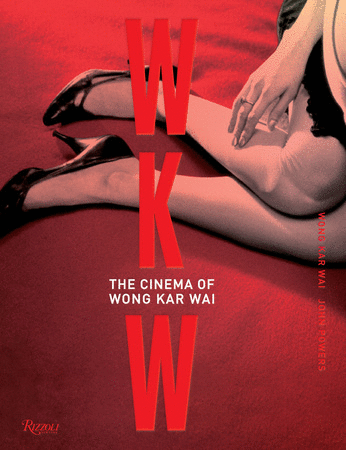


 Master Chinese writer-director Jia Zhangke returned to the New York Film Festival last year with Mountains May Depart, a melancholic look at love and relationships in which one decision can change the rest of your life, as well as an allegory about China itself and its path in the world. Jia’s wife and muse, Zhao Tao, stars as Shen Tao, a flighty, flakey young woman flirting with coal miner Liangzi (Liang Jin Dong) and burgeoning capitalist Zhang Jinsheng (Zhang Yi) in 1999 China, the country on the cusp of an economic crisis. It’s easy to see the young woman’s romantic decision as a microcosm of China’s economic decisions, as the working class battles the wealthy elite, and the effects of both are profound. The setup is reminiscent of the love triangle at the center of François Truffaut’s Jules et Jim, but Jia takes it much further, continuing the story in 2014, and then into 2025, a bleak future where individual happiness is painfully elusive. Jia (Still Life, The World, 24 City) and his longtime cinematographer, Yu Lik-wai, shoot the three time periods in different screen ratios, exemplifying how much things evolve as Chinese capitalism and globalism take over, affecting — and disaffecting — the next generation. But the past is always snapping at the characters’ heels; much of the film takes place in the Yellow River basin, where ancient structures recall China’s history, and in Jia’s vision of the future, vinyl LPs are back in fashion (although handheld devices are much cooler). Music plays a key role in the film, primarily Sally Yeh’s Cantonese song “Take Care” and the Pet Shop Boys’ cover of the Village People’s “Go West,” the latter a title that gets to the heart of the film.
Master Chinese writer-director Jia Zhangke returned to the New York Film Festival last year with Mountains May Depart, a melancholic look at love and relationships in which one decision can change the rest of your life, as well as an allegory about China itself and its path in the world. Jia’s wife and muse, Zhao Tao, stars as Shen Tao, a flighty, flakey young woman flirting with coal miner Liangzi (Liang Jin Dong) and burgeoning capitalist Zhang Jinsheng (Zhang Yi) in 1999 China, the country on the cusp of an economic crisis. It’s easy to see the young woman’s romantic decision as a microcosm of China’s economic decisions, as the working class battles the wealthy elite, and the effects of both are profound. The setup is reminiscent of the love triangle at the center of François Truffaut’s Jules et Jim, but Jia takes it much further, continuing the story in 2014, and then into 2025, a bleak future where individual happiness is painfully elusive. Jia (Still Life, The World, 24 City) and his longtime cinematographer, Yu Lik-wai, shoot the three time periods in different screen ratios, exemplifying how much things evolve as Chinese capitalism and globalism take over, affecting — and disaffecting — the next generation. But the past is always snapping at the characters’ heels; much of the film takes place in the Yellow River basin, where ancient structures recall China’s history, and in Jia’s vision of the future, vinyl LPs are back in fashion (although handheld devices are much cooler). Music plays a key role in the film, primarily Sally Yeh’s Cantonese song “Take Care” and the Pet Shop Boys’ cover of the Village People’s “Go West,” the latter a title that gets to the heart of the film.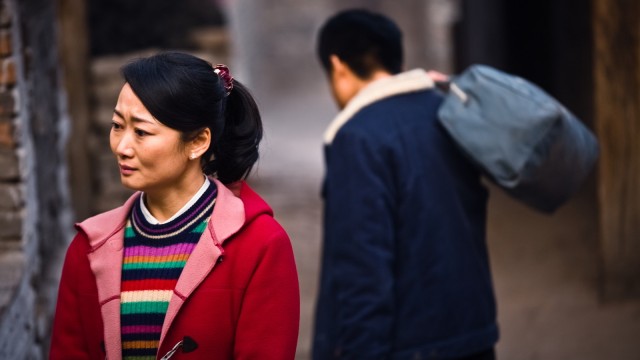




 Near the end of Weiner, one of the most revealing and entertaining documentaries about a political figure you’re ever likely to see, one of the directors, Josh Kriegman, asks subject extraordinaire Anthony Weiner, “Why have you let me film this?” It’s a great question, and one that can be inquired of Weiner’s wife as well, Huma Abedin, who stands alongside her scandal-ridden husband nearly every step of the way. In May 2011, during his seventh term as a fierce, fiery congressman representing parts of Brooklyn and Queens, Weiner was forced to resign in disgrace after it was discovered that he had sent lewd pictures of himself to several women over a public social media account while lying about it as well. Just two years later, the Brooklyn-born Weiner decided to get back in the game, running for mayor of New York City. Kriegman, who was a senior aide to Weiner in 2004-5 and his New York chief of staff in 2005-6, thought the comeback campaign would make a fascinating story, and Weiner agreed, giving him virtually unlimited access to his family and staffers. Initially, everything is going better than expected: Weiner is leading in the polls and getting his message across. But then the sexting scandal rises up again, and it all starts falling apart. Weiner tries hard to fight the good fight, concentrating on communicating his political platform, but the media only wants to ask him and his brave wife about the sexting, even when it is clear that the people of New York City prefer to talk about the issues. “I guess the punch line is true about me. I did the things . . . but I did a lot of other things too,” Weiner acknowledges. Of course, maybe Weiner never really had a fair chance. The movie begins with a telling quote from Marshall McLuhan: “The name of a man is a numbing blow from which he never recovers.”
Near the end of Weiner, one of the most revealing and entertaining documentaries about a political figure you’re ever likely to see, one of the directors, Josh Kriegman, asks subject extraordinaire Anthony Weiner, “Why have you let me film this?” It’s a great question, and one that can be inquired of Weiner’s wife as well, Huma Abedin, who stands alongside her scandal-ridden husband nearly every step of the way. In May 2011, during his seventh term as a fierce, fiery congressman representing parts of Brooklyn and Queens, Weiner was forced to resign in disgrace after it was discovered that he had sent lewd pictures of himself to several women over a public social media account while lying about it as well. Just two years later, the Brooklyn-born Weiner decided to get back in the game, running for mayor of New York City. Kriegman, who was a senior aide to Weiner in 2004-5 and his New York chief of staff in 2005-6, thought the comeback campaign would make a fascinating story, and Weiner agreed, giving him virtually unlimited access to his family and staffers. Initially, everything is going better than expected: Weiner is leading in the polls and getting his message across. But then the sexting scandal rises up again, and it all starts falling apart. Weiner tries hard to fight the good fight, concentrating on communicating his political platform, but the media only wants to ask him and his brave wife about the sexting, even when it is clear that the people of New York City prefer to talk about the issues. “I guess the punch line is true about me. I did the things . . . but I did a lot of other things too,” Weiner acknowledges. Of course, maybe Weiner never really had a fair chance. The movie begins with a telling quote from Marshall McLuhan: “The name of a man is a numbing blow from which he never recovers.” 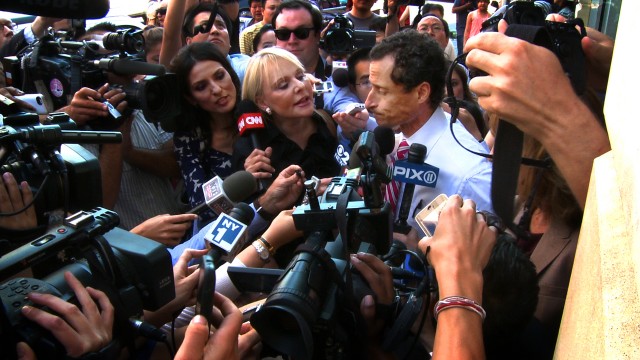

 Rebecca Miller channels her inner Woody Allen and Noah Baumbach with the bittersweet romantic comedy Maggie’s Plan, which made its U.S. premiere at the fifty-third New York Film Festival last September. Greta Gerwig is at her loopy best as Maggie, a thirtysomething college arts administrator who, after failing to maintain any relationship for more than six months, decides to become a single mother by impregnating herself with the sperm of an old classmate, Guy (Travis Fimmel), a Brooklyn hipster trying to become a pickle mogul. (He works for the real
Rebecca Miller channels her inner Woody Allen and Noah Baumbach with the bittersweet romantic comedy Maggie’s Plan, which made its U.S. premiere at the fifty-third New York Film Festival last September. Greta Gerwig is at her loopy best as Maggie, a thirtysomething college arts administrator who, after failing to maintain any relationship for more than six months, decides to become a single mother by impregnating herself with the sperm of an old classmate, Guy (Travis Fimmel), a Brooklyn hipster trying to become a pickle mogul. (He works for the real 